THCa buds are emerging as a non-psychoactive alternative in the cannabis space, offering potential benefits for cognitive function and mental clarity. Unlike THC, THCa interacts with the endocannabinoid system without causing intoxication, potentially improving focus, sensory perception, and mental acuity. Preliminary research suggests that THCa may positively influence neurotransmitter activity, offering a natural approach to enhancing mental sharpness. The non-psychoactive nature of THCa makes it an attractive option for those seeking therapeutic benefits related to mental focus without altering their state of mind. While scientific understanding is still developing, the initial evidence indicates that THCa buds could be beneficial for individuals interested in maintaining or improving cognitive performance, with a promise of further research to elucidate its full effects. THCa buds are rich in cannabinoids like THCa, CBN, and CBG, along with terpenes, contributing to the entourage effect and offering potential cognitive benefits without psychoactive side effects. Users should approach THCa buds for mental focus with caution, considering individual sensitivities, medication interactions, and the conversion of THCa to THC upon heating or exposure to light. It is important to adhere to local laws, practice responsible consumption, and consult with healthcare professionals before incorporating THCa buds into one's routine for cognitive enhancement.
Exploring the potential benefits and considerations of THCa buds, this article delves into their role in enhancing mental focus. As an alternative to traditional stimulants, THCa buds offer a natural avenue for cognitive performance improvement. We’ll examine the science behind THCa’s impact on the mind, its composition beyond cannabinoids, and the nuanced differences between THCa and its psychoactive counterpart, THC. Acknowledging the potential side effects of THCa flower consumption, we’ll discuss how dosage plays a critical role in balancing its benefits with any adverse reactions. Additionally, we’ll cover the influence of terpenes within THCa buds on mental clarity, the interactions with medications, and health concerns to consider. For those curious about integrating THCa into their daily routine, this article also touches on personal experiences, legal status across jurisdictions, and a holistic approach to its use. Furthermore, we’ll contrast THCa’s effects with those of CBD, offering insights into how both can influence focus and mental wellbeing.
- Unveiling THCa Buds: A Natural Approach to Enhancing Mental Focus
- The Science Behind THCa and Its Impact on Cognitive Performance
- Understanding the Composition of THCa Flower: More Than Just Cannabinoids
- Potential Side Effects of THCa Flower Consumption
- Dosage Matters: Navigating the Balance Between Benefit and Risk
Unveiling THCa Buds: A Natural Approach to Enhancing Mental Focus
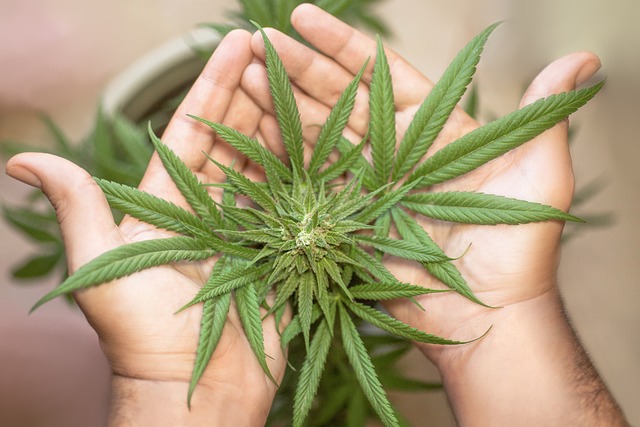
THCa buds have garnered attention in recent times, particularly for their potential to sharpen mental acuity. Unlike its psychoactive counterpart THC, THCa exists in the raw cannabis plant and does not induce intoxication. This distinction allows individuals to harness its benefits without the mind-altering effects associated with THC. Emerging research suggests that THCa buds may interact with the body’s endocannabinoid system, influencing neurotransmitter release and potentially enhancing cognitive function. Users report a heightened state of focus and clarity when consuming THCa, which could be attributed to its ability to stimulate certain receptors in the brain linked to attention and concentration.
Incorporating THCa buds into one’s routine can be a natural strategy for those seeking to improve their mental focus. It’s important to note that while anecdotal evidence is promising, scientific studies are still forthcoming. However, proponents of THCa argue that its non-psychoactive nature makes it a suitable option for individuals who wish to maintain cognitive clarity while experiencing the cognitive benefits associated with cannabis. As such, THCa buds for mental focus present an intriguing avenue for natural cognitive enhancement, warranting further investigation and consideration by both researchers and those interested in the therapeutic properties of cannabinoids.
The Science Behind THCa and Its Impact on Cognitive Performance
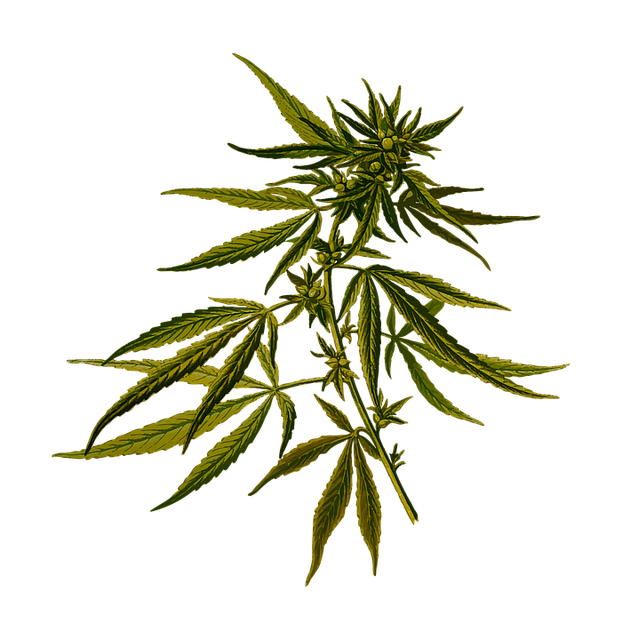
delta-9-tetrahydrocannabinolic acid (THCa) is a non-psychoactive cannabinoid found in cannabis and hemp plants, often derived from THC buds. Research indicates that THCa may possess cognitive benefits, potentially enhancing mental focus and clarity. The scientific rationale behind its impact on cognitive performance stems from its interaction with the body’s endocannabinoid system (ECS), which plays a significant role in regulating various functions including memory, learning, and cognition. THCa is believed to stimulate the CB1 and CB2 receptors within the ECS without the psychoactive effects associated with delta-9-THC. This modulation can lead to improved attention span, heightened sensory perception, and increased mental acuity.
Studies have shown that THCa may support neural health and protect against neurotoxicity, which could contribute to its potential for promoting mental focus. The precursor to THC, THCa has been found to exhibit neuroprotective properties in animal models, suggesting it might help maintain brain health over time. Additionally, anecdotal evidence from users consuming THCa buds for mental focus highlights the cannabinoid’s potential for supporting cognitive tasks and enhancing overall mental performance, particularly in tasks requiring concentration and problem-solving skills. As research continues to evolve, the understanding of THCa’s effects on cognitive function becomes clearer, offering promising insights into its role as a natural supplement for mental clarity and focus.
Understanding the Composition of THCa Flower: More Than Just Cannabinoids
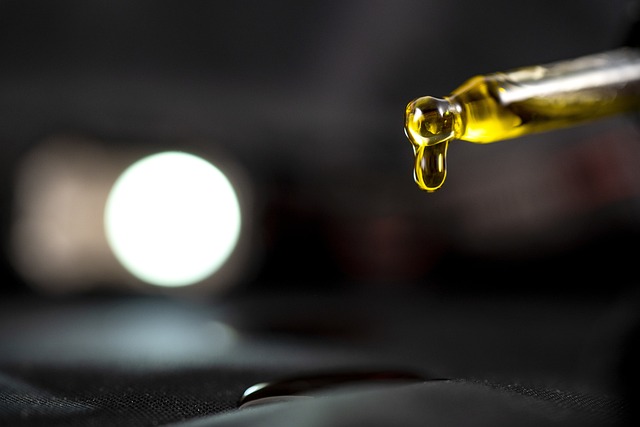
Throughout the past decade, THCa flower has garnered significant attention within both scientific and recreational circles due to its unique compositional profile. Unlike its psychoactive counterpart THC, THCa exists in its non-psychoactive acid form until exposed to heat, which then activates its psychoactive properties. This key distinction is crucial for individuals seeking the therapeutic benefits of cannabis without the “high” associated with THC. The buds, rich in THCa, are being lauded for their potential cognitive enhancing effects, offering a clear-headed mental focus that can aid in tasks requiring acute attention and concentration.
The entourage effect, a phenomenon where the various compounds within cannabis interact synergistically, plays a pivotal role in the experience provided by THCa buds. Beyond cannabinoids like THCa and CBD, these flowers contain a complex blend of terpenes, flavonoids, and other minor cannabinoids such as CBN and CBG, each contributing to the overall effect. Terpenes, in particular, are known for their role in modulating mood, reducing stress, and potentially increasing mental clarity and focus. This sophisticated interplay of compounds is what sets THCa flower apart from other cannabis products, making it a subject of interest for researchers and enthusiasts alike who are keen to explore its full potential.
Potential Side Effects of THCa Flower Consumption
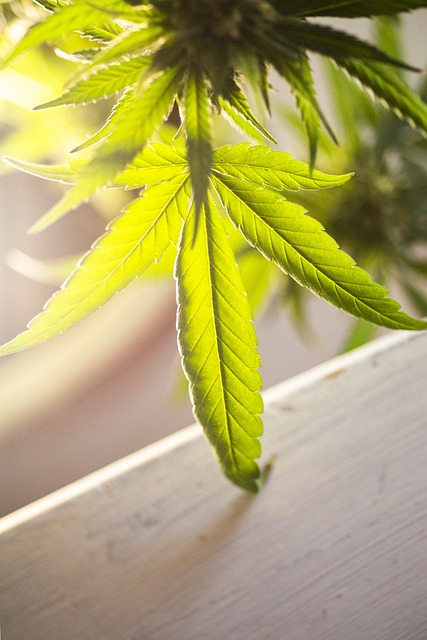
THCa flower, derived from cannabis plants, contains tetrahydrocannabinolic acid, a non-psychoactive precursor to THC. While THCa buds are often touted for their potential cognitive benefits, including enhancement of mental focus, it’s important to be aware of the potential side effects associated with their consumption. Users may experience mild psychoactive effects when THCa is exposed to heat or light, converting into THC; this conversion can lead to unexpected mind-altering experiences for some individuals. Common side effects include dry mouth and red eyes, which are typically temporary and resolve once use is discontinued. However, individual sensitivity can cause varying degrees of these reactions. Rarely, but more significantly, some users might report dizziness, lethargy, or anxiety. It’s also worth mentioning that the combination of THCa with certain medications could potentially alter their effects, necessitating caution and consultation with a healthcare provider, especially for those with pre-existing conditions or those who are sensitive to cannabinoids. Always consume responsibly and in accordance with local laws and regulations.
Dosage Matters: Navigating the Balance Between Benefit and Risk
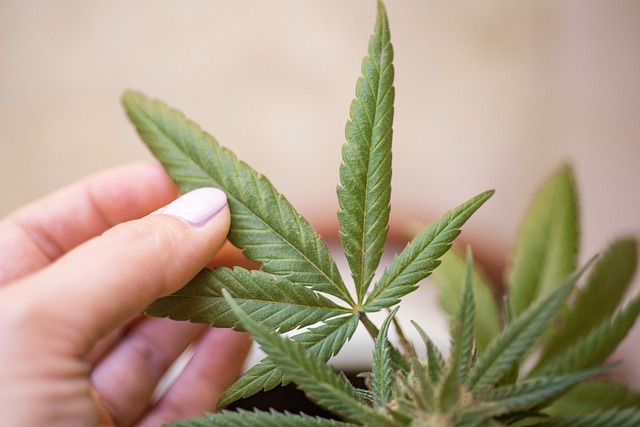
When exploring the potential benefits of THCA flower, particularly for enhancing mental focus, it’s crucial to approach dosage with a balanced perspective. THCA buds, which contain the non-psychoactive acidic form of THC, have been reported to offer cognitive and focusing advantages without the intoxicating effects associated with its psychoactive counterpart. However, the optimal dosage for these benefits can vary significantly among individuals, as factors such as body chemistry, tolerance, and sensitivity play a role in how one responds to cannabinoids. Users are advised to start with a low dose to gauge their body’s reaction before gradually increasing it, should they decide to do so. This cautious approach allows for the identification of the optimal dosage for personal mental focus enhancement without tipping the scales towards adverse effects, which can include drowsiness or disorientation if too much is consumed. It’s essential to listen to one’s body and consider personal experiences when determining the right amount, as individual thresholds can differ markedly. Consistency in dosage and monitoring one’s response over time can help fine-tune the balance between the desired cognitive benefits and minimizing the risk of adverse side effects associated with THCA flower consumption.
In conclusion, THCa buds have emerged as a natural alternative for those seeking to enhance their mental focus. The scientific community has shed light on how these cannabinoids interact with our cognitive processes, offering potential benefits. However, it is imperative to approach their consumption with careful consideration of dosage and personal health factors, as side effects such as anxiety, lethargy, or psychomotor impairment can occur. By understanding the complex composition of THCa flower beyond mere cannabinoid content, consumers can make informed decisions to safely utilize its properties for mental clarity. It is always advisable to consult with healthcare professionals before incorporating THCa buds into one’s routine, ensuring a balanced approach that maximizes well-being and minimizes potential adverse effects.
